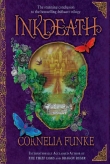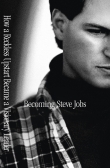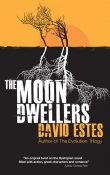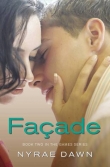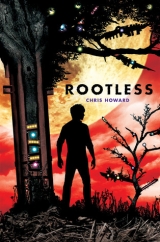
Текст книги "Rootless"
Автор книги: Chris Howard
Жанры:
Классическое фэнтези
,сообщить о нарушении
Текущая страница: 3 (всего у книги 17 страниц)

What if it existed? The idea jammed inside me. What if it was real? A place where wild things grew. Not just a photograph. Not just a trick or a dream. Trees. Real trees. Real enough that people were looking for them. That GenTech was looking for them. And somehow my father had wound up in their midst?
I suddenly thought about Frost’s house, my understory of squeaky wheels. And if there were trees out there with roots getting deeper and limbs reaching high, then what good had it been building forests out of crappy bits of tin?
I climbed out of the car and a rotten salt wind blew off the Surge and stung the dust around me. I felt sick. Swallowed whole. And I wished to hell I could just sleep. Shut myself down, shut myself up. But all I could see behind my eyelids was my old man’s face.
I kicked the back wheel of the wagon. It just didn’t make any damn sense. None of it did. And though Pop was coiled up in chains in that picture, it made me almost bitter that the folk doing the taking hadn’t snatched me up, too. I’d been just left here in the dirt with the junk and the hungry. I kicked the wheel again. Then I slammed a fist at the wagon and damn near broke my hand.
“Stop,” Zee cried, staring at me across the roof of the car. “We got to figure out what to do.”
“Do? I’m gonna drop you off, that’s what I’m gonna do.”
“Then what?”
I stared back at the Surge. Then I looked west where the land crumbled like bits of cornbread. And I imagined soil bound with roots and wood for the burning and shade from the sun and a rest from the wind. And I pictured Pop, the metal chains wound around him, strapping him to the tree. Why? What was he doing there? It didn’t matter. If it were me in trouble, I knew my dad would come running.
“How long you had that camera?” I said.
“Crow tracked it down a few months back.”
“And who was it he got it from? I mean what was their name?”
“I don’t know. Want to ask him?”
“I will if I have to.”
Zee went to say something but the words got knocked out of her. She fell as the wagon slumped and the ground rumbled and the world split wide open.
“No,” I whispered, staring back at the ocean.
Zee’s holler rose up like a siren but I didn’t need another warning. I yanked open the door and jumped behind the wheel, cranking the engine as the ground let out a sigh and compressed again beneath us.
The road sank about fifteen feet.
“Get in,” I yelled, reaching across and tugging Zee into the car, slamming down the accelerator.
I stared into the mirror, watched dirt rise like smoke across the night. Another boom and the wagon slipped, but I floored it, willing it to keep going. Zee was kneeling up on her seat now, spun around to stare behind us, watching as the cliffs disappeared in the distance, gasping each time a new chunk of earth got gobbled by the furious Surge.
For years the cliffs had stayed where they were. But now they were hollow. Broken. And the world was collapsing.
Zee kept squealing till her lungs got choked. Then she was coughing. And when she weren’t coughing she was begging me to go faster. As if I weren’t thumping at the engine, fast as it would go.
Hard to see now. Dust filling the darkness. I could feel the road stodgy beneath the wheels. Dirt any deeper and we’d have been swimming in it.
Swimming.
I thought about that watery death, clawing its way closer. And I knew swimming wouldn’t help you, but not having the option still made it so much worse. I could almost feel the water in my lungs already, my chest tightening, just as it had all those years before. My limbs useless. Everything squeezing shut.
I stared straight ahead, tried to blink the fear out of me. But then Zee cried my name like I’d pinched her.
“What?”
“I think it’s stopping,” she called. I strained my ears to listen above the sound of the wagon. Was that it? Silence?
I stomped at the accelerator. Far from convinced.
But another few minutes and the dust began clearing, and what was left of the road had stayed where it was. I wound my window down, stuck my face out in the night.
The Surge felt far away. In the distance.
But then the ground began ripping apart right in front of us. A huge gash, breaking open the road and getting wider. As if the world had grown so weary it was tearing itself to pieces, slicing its brittle remains into shreds.

For a moment the wagon was airborne, the whole night grimy and blind as we arced through it. Then our front wheels hit dirt again and the car plowed to a halt.
Behind us the cliffs exploded into the water, and the spray shot upward until all we could see was dust and ocean and every little thing dissolving into sky. But we were still there. Hanging on. Our front end was buried in sand but the bulk of the wagon hung out over the ocean. Just dangling there. A thousand feet high.
Zee was huddled on the dashboard, her eyes shiny, blinking at me. And I realized she was waiting on me to do something. Anything.
Could have just crawled out the windows. Run west right then. But there’s nowhere in the world you can get on foot, so I clicked at the ignition.
The engine stayed dead.
I glanced down at the Surge and thought it had calmed a little, as if the earth had soothed the water, diluted the waves. But back out past the breakers, I’d never seen it so big, the arc of the whirlpools stretched so wide. And beyond them, at the wobbling far corner of the world, I could see red streaks as the sun refused to quit. Here it came again, that scorching ball of heat.
I coaxed the engine back on the sixteenth try, like getting a fire going on wet plastic. The wagon eased forward, digging into the sand, but the back end was too heavy and we sank again. Stalled.
I stared back at all my shit. The tools and supplies.
“Hold on,” I whispered, shoving Zee tighter on the dashboard. And then the wagon bent and rocked as I wriggled toward the hatch at the far end.
It was so dark. Dusty. And I was sweating, slippery and afraid. Everything quiet now but for the sound of the water twisting and foaming below us, the wagon creaking, the rear end dipping lower with every inch I slid.
The hatch was sticky, weighted with sand and rocks, and I had to pry at it, jamming it free. But then the wagon squeaked and shifted. And it started to pitch real low.
I was staring straight down at the bulging waves and Zee was screaming. Everything was moving. Boxes sliding past me, piling up against me.
I got the hatch wide with my whole body shaking and I shoved out the scrap and the nails. LEDs. Sheets of steel. I watched it all plummet through the first rays of dawn, disappear into the water raging white.
I had one hand clasped inside the wagon and my eyes stuck on the Surge. But the wagon steadied a little, eased up. I threw my tools to the front end, shuffling after them until I was horizontal. Flat instead of tall.
The dirt was holding. For now.
“Stay there,” I said, keeping Zee shoved at the windshield. I slipped into the front seat and spat dirt from my teeth as I cranked the engine and rolled us forward, the front wheels clawing their way deeper into the sand until we were right up in it, back end and all.
“Come on,” I whispered, easing the engine a little stronger. A chunk of dirt shifted beneath us, just enough to get us going, and damned if the wagon didn’t buzz right on up, topping off, not exactly racing along or anything, but as that sun rose red behind us, we were crawling our way west.
Zee scooted off the dash and wound herself against me, nuzzling her face in my neck and half crying, half laughing like a shanty loon. I’d never come close to being touched like that. I mean, a girl. Pressed against me. I could hear the broken sound of her lungs, and for a moment I wanted to wrap my arms around her. Tell her she was safe.
But the moment passed.
I shoved Zee aside and swerved the wagon. Because there, right in front of us, a lone figure stood in what was left of the road.

Our wheels spun to a halt and the dust rose in dirty pink sheets. I waited for the air to clear and stared back at where the road should’ve been. And I was about to crack my door open, when the man started from out of the dust like he was himself a part of it.
He had long, twisting dreads, painted gray by the sand. And buried beneath that swarm of hair was a face old as I’d ever seen, with a beard hanging heavy and long.
“Holy shit,” I whispered as the Rasta floated closer through the dirt clouds. It was the same old fool from shantytown, the same hockey stick held like a staff before him.
“Who is he?” Zee said, her hand on my arm.
We watched the man reach the front of the wagon and peer in at us, smiling with a set of big brown teeth. He started mouthing something and finally I got sick of just sitting there and I opened my door to climb out.
“What the hell you doing out here?” I yelled at the old coot.
“I and I be seeing the sunrise.” His voice was thin, like he’d worn it out. “Sun come up all the way from Zion this morning, bringing me news of the Promised Land.”
“You walk out here?” I stared at the man’s bare feet, so old they’d practically grown into a pair of shoes all their own.
The old guy nodded, smiling. “I sure be happy to see you, sire.”
“Why? You wanting a lift?”
The Rasta let out a burst of laughter. Just one quick roar. “You come here from the ocean, man. I see you. Spat like Jonas from the whale.”
I stared back at the sun crawling up the horizon, the spray of the Surge turning misty in the distance. “Listen, pal,” I started to tell him, but he cut me off, throwing his staff up at the sky and his voice all of a sudden booming so loud I jumped back at the sound of it.
“Jah has returned home, my lovelies. The roots that feed this giant tree. Sent ’cross depths of the ocean. Over hills and valleys of water.” The Rasta was almost singing the words, and he kept on with them as he ran to me and collapsed on the ground, dropping his staff at my feet. “Like the King before you, may you lead me back to that Promised Land.”
Zee was out of the car now, running around the wagon and kneeling down to the pile of twisted hair and rags, reaching her hand to steady the old man’s shoulder as he swayed around in the dirt.
“You’ve been there,” Zee said, half asking it but mostly saying it like it was fact. “The Promised Land.”
“Seen it with my own eyes.” The man stopped rocking and stared up at Zee with his brown teeth gaping as his face broke out in a smile. “And Jah touched me with his own hand.”
The Rasta sat back in the sand and reached to the rags across his belly, he fumbled around and finally pulled up his shirt. And there, stretched across his skinny ribs, the black skin had been transformed into something else. Like a sickness or something.
I stared at the man’s strange skin, bubbled and rough and hard. Zee had recoiled and was up on her feet, backing away.
“What the hell is that?” I said, kneeling down, trying to get a closer look. But I already had a pretty good idea of what it was, though it was not something I’d ever seen before. And I knew it wasn’t something that should be growing thick on human skin.
“Little slice of the Tree of Life, sire.” The Rasta grinned at me and tapped at his belly. A solid sound. Not like bones or flesh, but nor was it the sound of plastic, stone, or tin.
“It’s wood,” I said, staring in his huge eyes, and those eyes just smiled right back at me, as if they might tell a hundred stories between each blink. “It’s bark.”
“And Jah will free us when we all get back there, sire. When we build a boat that’s big enough.”
“Holy shit,” I whispered. Then I stared at Zee. “You seeing this?”
She was just shaking her head, freaking out. Hell, it was a freaky sight. Closest thing to a real tree I’d ever seen, though. Bark. Real bark. Somehow embedded in the old man’s skin. I reached out and touched the knotted chunks and it was wood, all right. Just like in the old stories. Wood you could chop with an axe. Polish up or burn.
“Where the hell you been, old timer?” I said to him. “How’d this happen to you?”
“I’m a child of Zion,” he said. “Eaten of the Tree of Life and then turned from the righteous path. But you will lead me back there, for I am fearful no more.”
I pulled the picture from my back pocket and wiped it clear of dust. Then I held the photo to the old man and his eyes grew glassy.
“Jah, man,” he wailed, happiness splitting his voice in two.
“This,” I said, pointing. “This is my father.”
“Sure it be, sire,” the Rasta whispered. “If he still be alive.”
“Alive?”
“But it be winter. Usually spring before there’s killing.”
“What killing?”
“Murderers.” Tears beaded up on the old man’s cheeks. “In the spring. Murderers, the lot of them.”
“Your father?” Zee snatched the picture and shook it at me. “This guy’s your dad?”
“Yeah,” I said. I stood, wobbled to the wagon and leaned against it, steadying myself as everything spun inside. “It’s Pop.”
“The King” was all the Rasta would say. “The King.”

We drove in silence. Each one of us in a world alone. I’d fired up some corn for the old dude and he ate sprawled in the back of the wagon, wearing my dad’s old sombrero and drifting off to sleep.
I’d got nothing more out of him. He’d just babble on about the King and the Promised Land, and look solemn when I mentioned Pop.
Every now and then, I’d feel Zee stare across at me. She’d go to speak but then drop it. Hell, I don’t know, maybe she could hear my brain overheating, see the smoke coming out of my ears.
I glanced back at the poor freak in the back of the wagon, his head resting on my nail gun, his stomach made of wood. Something had happened to him. A mutation, maybe. But not like any I’d seen.
“Do you believe now?” Zee said finally.
“Believe in what?”
“Zion. The Promised Land.”
“I reckon there’s trees out there. Someplace the locusts can’t get ’em. But where?”
“I don’t know,” Zee said. “But I’ll go anywhere. Trade anything. Whatever it takes.”
I frowned, thinking. Up there in the distance I could see the edge of shantytown, the broken shacks blistered in the sun. And beyond those ragged streets was Frost’s house. The whole place would be in alarm by now. Their girl missing. The tree builder nowhere to be seen.
“You should have told me it was your father,” Zee said.
“Yeah? Why’s that?”
“Changes things, don’t you think?”
I rolled my eyes at her. But she was right. It changed everything. Pop was a half of myself that had always been there. And I’d become stretched and faded with that other half gone.
“You reckon that place is Zion,” I said. “But the way my dad’s chained up in that picture sure don’t make it look like paradise.”
“It doesn’t matter.”
“It matters to me.”
“But if people have been there,” Zee said. “If they’ve found it, then we can get there, too.”
“Or Frost can,” I said, thinking about that room of his, full of maps and books. “Man must have a plan.”
“Crow’s got him convinced Zion’s out there.” She pointed behind us. “Across the water. But they’re waiting on something before they set off.”
“What they waiting on?”
“Beats me. It’s only because Frost thinks I’m stupid I know anything at all.”
“And what do they aim to do if they get there?”
“You kidding? People will pay a whole lot for a little slice of Zion.”
“Is that what you want? Find the Promised Land so you can sell it off?”
“I just want to breathe clean air.” She jabbed a thumb at her wheezy chest. “Find a place to be free.”
“With that bastard Frost?”
“Not if I find a way to get rid of him.”
“Maybe you should just keep running.”
“With nowhere to go and nothing to eat?”
“Then maybe you’re as free as you’re ever gonna get.”
“What?” Zee sneered. “You think you’re free? Roaming around in your rusty wagon and scraping for something to eat. You’re not free. No one is. Not as long as GenTech’s the only ones who can grow anything.”
“There could be fruit trees,” I said. “They could be fruit trees in that picture.”
“And who knows what else might be growing?”
“Well, wherever there is, you’d have to stay put. Locusts keep to the cornfields, but they might make an exception, you give them a new place to nest.”
“Find Zion and I’d never leave. Never.”
“Not if they chain you to the damn trees.” I thought about Pop. And then I stared across at Zee. “I need you to tell me about the coordinates.”
She smiled, but not at me. It was like she’d gotten something she wanted, and she sank back into her seat. “I’m not telling you anything else, tree builder. But if you want my help, then you can do what I say.”
“What the hell’s that mean?”
“It means we’re a team. We work together as long as it makes sense. One of us needs to do our own thing, the team’s over. Right then.”
“Sure,” I said. “Works fine for me.”
“Then step on it. Crow will be in shantytown this morning.”
I slammed on the brakes, though the shacks were still a good ways in the distance. “Crow?”
“Yeah. Today’s when he drops my mother off with the Tripnotyst.” She stifled a cough. “Her weekly appointment.”
“You want to talk to Crow?”
“No.” Zee shook her head. “I want to get my mother back.”
“We can come back for her later,” I said, thinking about my dad and the old Rasta’s warning. “Race this crowded, we need all the head start we can get.”
“We’re not leaving her behind, tree builder. Frost’s got her shattered and strung out on crystal, but she’s still my mother.” Zee glared at me. “And we’re gonna need her if we’re gonna find us those trees.”

The tattoo. That’s what Zee said we needed. But that’s about all she would say about it.
I left the wagon stashed at the scrap farm and the guy there told me he’d keep his eye on it. I didn’t tell him I had a freaky old Rasta buried in the back of the car. Didn’t tell him I was planning to go kidnap me someone else, neither.
Zee was dressed in one of Pop’s old shirts, my extra goggles hiding a good part of her face and an old rag wound around the rest of it. I padded an extra bit of cloth against her nose and mouth, doing what I could for her busted lungs.
I’d never walked that stretch of shantytown before, and it wasn’t so much that it looked different than it did through the car window, but I swear it smelled twice as bad. The wind had started up and the sand blew hot and stinky. Still, I was grateful for the camouflage.
“So what the hell’s a Tripnotyst?” I said, my mouth all full of grit.
“Supposed to help you remember things.” Zee’s voice was muffled by the rags, and almost drowned completely by the wind.
“Like what?”
“I don’t know.” She shrugged her skinny shoulders. “I remember everything. Most stuff I’d rather forget.”
“Then what’s your momma forgotten?”
“If we knew that, she wouldn’t be going to the Tripnotyst. But Frost reckons her tattoo’s from the same place as that photograph.”
It was the tent I’d seen Crow emerge from just a couple days before, back when I was killing time and waiting for my water tank to fill.
We loitered out of sight, hidden behind a stall selling salvaged plastic toys shaped like animals. Folk trading for memories of a time before the Darkness and the locusts and the barren new world.
“You think he’s in there?” I asked Zee. But before she could reply, we watched the tent flap roll up, and Crow came strolling out with his shades pulled on and his headphones plugged in.
We ducked behind the stall and peered around the side of it, studying Crow as he rolled on by. I tried to guess where he was going, what thoughts were buzzing inside those big old dreadlocks.
“Now’s your chance,” Zee whispered, shoving me forward. “Get my mom out of there. Tell her you’re with me.”
“What about the Tripnotyst?”
“Tell him whatever you have to.”
“And what are you gonna do?”
“I’ll keep watch, idiot. Make sure Crow doesn’t come back.”
I waited till the watcher was out of sight and then I sprinted to the tent door. I glanced back and saw Zee huddled between the water tanks at the drinking station. And then, before I could think anymore about what I was doing, I yanked off my goggles, eased up the tent flap, and plunged into the dark.
Inside that tent was as black as any place I’d ever been. The plastic flap fell behind me and suddenly the street seemed a mile away. I blinked, searching for light. Then I just stumbled forward with my hands stretched out ahead of me.
There was a gurgle of static, a buzz of electricity. And was that music? I strained to listen. No. Just the drone of machines.
I felt wires underfoot and dropped down and groped at them, crawling along with the cables until I hit something solid. Walls and edges. Some kind of container, about twice my size. I stood up and felt around at it. I stuck my ear to the wall of the metal box, and through the hum I heard voices.
Then something else.
I spun around. Faced back the way I’d crawled in. I heard the sound again. A tiny scrape. And suddenly, just a few feet from me, a lighter caught and flamed, puncturing a hole in the darkness.
The flame spat and flickered, coloring the tent with an orange glow, and I watched the flame kiss the end of a pipe, smoke and cinders hissing as the pipe was puffed and chewed. Before the lighter cut off, I had enough time to try and read the eyes staring at me.
But those eyes were impossible to read.
“Welcome back, Mister Banyan,” said Frost, chomping at the pipe like it was breakfast. Then he snuffed out the lighter and all I could see was the crystal making patterns in the darkness as Frost made his way toward me.
